
B2B Articles - October 12, 2017
Acquiring donors and driving new donations may be the top mission of non-profit organizations. But a close second should be donor retention.
Over the last ten years, donor and gift or dollar retention rates have been consistently weak — averaging below 50 percent, according to the Association of Fundraising Professionals (AFP).

In fact, the AFP’s 2016 Fundraising Effectiveness Survey found that for every $100 dollars gained, $91 was offset by donor loss. The overall retention rate in 2015 was only 46%, with every 100 donors gained offset by 96 donors lost through attrition.
“Taking positive steps to reduce gift and donor losses is the least expensive strategy for increasing net fundraising gains.” — AFP
Count the following inbound marketing tips among the positive steps to make in marketing for nonprofits.
#1
Know your audience. Inbound marketing is founded on the idea that the audience is on a journey that demands different messaging at various stages. Specifically, someone just learning about the nonprofit’s mission would have different needs than a prior donor.
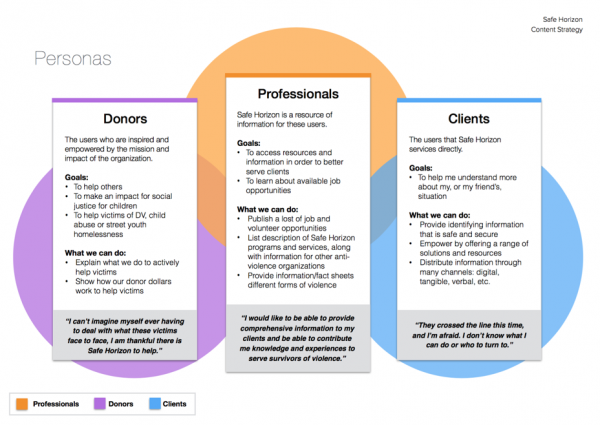 Focus on your personas and their goals as you decide on the content to nurture prospects through the sales cycle.
Focus on your personas and their goals as you decide on the content to nurture prospects through the sales cycle.
In creating donor personas, be sure to develop one for the recurring giver focusing on questions such as:
Since the prior donor already knows and trusts the organization, nonprofit marketing should capitalize on that awareness. Engage the donor in success stories and mission-related messages that emphasize the value of ongoing giving.
Related reading: Does Inbound Marketing work for Nonprofits?
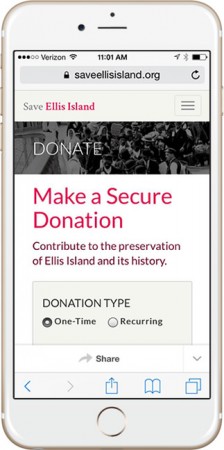
#2
Make it mobile. Mobile responsive donation pages yield 34% more gifts as they make it easier for people to make a donation. Making the entire website responsive, with donation forms directly embedded into the pages, is the best practice. In the case of a non-responsive site, link all donate buttons to mobile responsive landing pages that are consistently branded with the organization’s site.
#3
Personalize donor messaging. Using targeted forms to keep an up-to-date and detailed user database can make it easier to personalize communications to strengthen the existing relationship with donors. The nonprofit then might create personalized email communications, individualized welcome screens on the website, and more. Marketing automation software can make personalization even easier.
Foster this relationship building further by featuring content contributed by donors (pictures and personal stories) on social media platforms. This shows gratitude to the donor and can help inspire others to make new or repeat donations and share their own engagements with the organization.
#4
Analyze, then Analyze again. Creating storytelling content and personalized asks is only part of the nonprofit marketers' work. Fundraising and donor retention requires attention to metrics that truly matter. Track your donations, whether they are coming from unique donation landing pages, donation forms, SEO, or organic search.
The number of clicks on a link is meaningless, really, unless it is considered in relation to the total donations. Calculate the hard data of conversion rates to gauge efficacy rather than focusing on fluffy metrics such as social shares or site visits. In analyzing donation success, the marketer can also better gauge the amount to ask for and, who to ask, and when.
Here are a few other metrics to track to help improve and scale inbound efforts monthly/yearly:
84% of nonprofit marketers say increased fundraising is an important content metric; 30% say it is the most important metric.
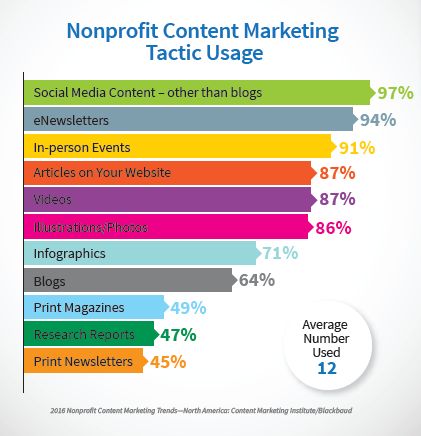
#5
Encourage recurring donations. Make it easy for donors to set up recurring gifts and include instructions on how to set up recurring donations in all asks. Shifting the nonprofit marketing strategy to prioritize monthly gifts creates larger donations, engages donors, and adds convenience while enabling efficient planning. Plus, dive deeper into donor data and create persona segments based on capabilities for giving, interests/motives, type of giving, triggers for giving, and other factors. Map out a plan based on where your fundraising and digital teams see the most opportunity. Consider creating more stories that show impact or personal stories. Run small batch campaigns to test messaging, format, and deliver to increase recurring donations. 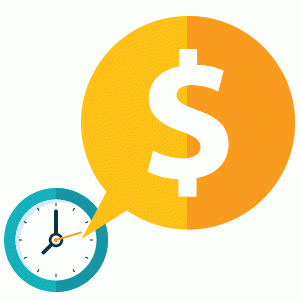
#6
Promote donation pages. Creating content just to have it sit there hoping to elicit giving is only doing half the job. Promote giving campaigns over text, email, social media, and direct mail. Content creation must be paired with content promotion to truly amplify impact.
Enable social sharing of the donation page, too. One needs only look at the success of the ALS’s Ice Bucket Challenge for evidence of the power of social proof.
Consider building engagement through:
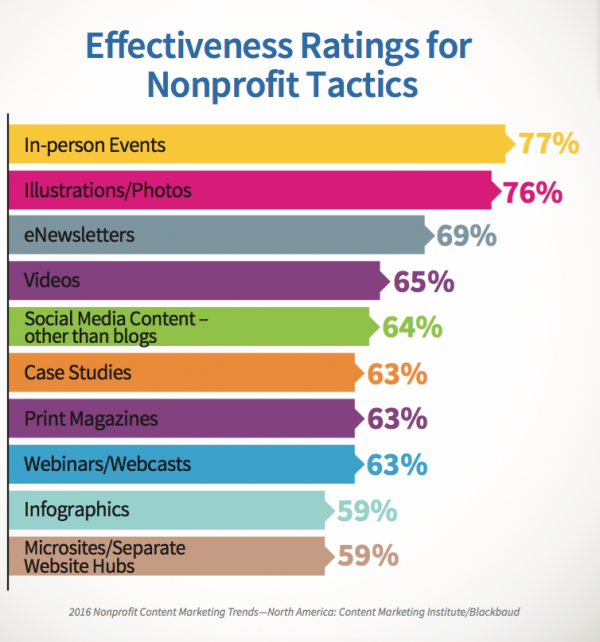
Related reading: Why Inbound Marketing Matters for Nonprofits
Donor retention doesn’t have to be difficult. With these inbound marketing strategies, it might require refocusing, but that effort is better expended on best practices than an “if you build it, they will [give]” mentality.
Sources:
Association of Fundraising Professionals. (2016). 2016 Fundraising Effectiveness Survey Report. https://www.afpnet.org/files/ContentDocuments/FEP2016FinalReport.pdf
Barry, G. (2015, October 9). 3 Marketing Tips to Boost Donor Retention. https://blog.hubspot.com/marketing/3-marketing-tips-to-boost-donor-retention#sm.00012g66czam8e61x1p1jlvdtvz6t
Blanco-Bertolo, T. (2015, September 17). 5 Marketing Campaign Improvements to Help Uncover More Donor Revenue. https://blog.hubspot.com/marketing/donor-marketing#sm.00012g66czam8e61x1p1jlvdtvz6t
Content Marketing Institute & Blackbaud. (2015, November). Nonprofit Content Marketing 2016: Benchmarks, Budgets, and Trends— North America. https://contentmarketinginstitute.com/2015/11/nonprofit-2016-content-marketing-research/
MobileCause. (n.d.). Online Giving Tips [Infographic]. https://www.mobilecause.com/downloads/Online-Giving-Tips-Infographic.pdf
Tel 212-993-7809
Ironpaper ®
10 East 33rd Street
6th Floor
New York, NY 10016
Map
First-party data marketing
SEO for B2B
Customer journey strategy
ABM Agency
Marketing for IoT Companies
HubSpot Implementation
B2B Product Marketing
Measurable Marketing
IoT go-to-market strategy
IT Marketing
HubSpot for ABM
Go to market strategy
Technology Marketing
Marketing for IT Companies
ABM Campaigns
B2B lead generation
B2B Marketing and Growth Agency.
Grow your B2B business boldly. Ironpaper is a B2B marketing agency. We build growth engines for marketing and sales success. We power demand generation campaigns, ABM programs, create B2B content, strengthen sales enablement, generate qualified leads, and improve B2B marketing efforts.